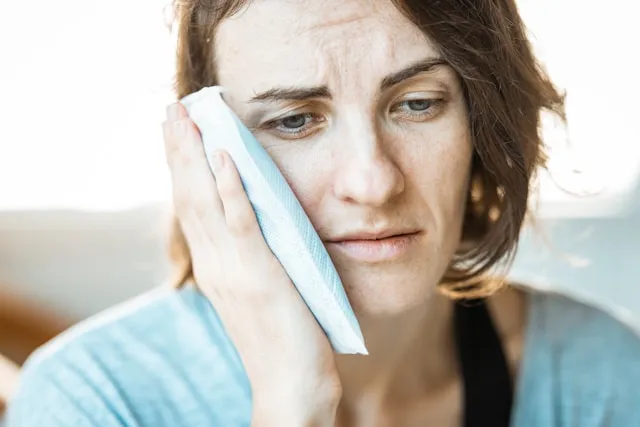Have you ever wondered why so many people are talking about kratom lately? Maybe you’ve heard someone say it helps with pain. Or maybe someone close to you mentioned it gives them energy or keeps them focused. But what’s the truth? What is kratom really good for, and is it even safe?
The truth is, kratom (scientifically called Mitragyna speciosa) is not some magical herb. But it’s also not something to ignore. It’s been used for centuries in Southeast Asia. And now, it's hitting shelves in the U.S. as a tea, pill, powder, or even an energy shot. Some call it a natural alternative to pain pills. Others say it’s dangerous and addictive. The lines are blurry, but the questions are real.
Let’s break down the blog to learn about all the potential health benefits of kratom.
What Is Kratom and How Does It Work?
Kratom comes from the leaves of a tropical tree found in countries like Thailand, Indonesia, and Malaysia. People there have used it for years to ease pain, fight fatigue, and help with mood. Farmers chew the raw leaves during long workdays. Traditional healers brew it into tea.
Now, fast forward to today. In the U.S., kratom use varies. You’ll find it in capsules, powders, and liquids. People claim it works for everything, energy, pain, stress, sleep, and even sex drive. The science behind it lies in the two main alkaloids, mitragynine and 7-hydroxymitragynine. These act on the brain’s opioid receptors. That’s where it gets controversial.
Low doses may make you feel alert, focused, and uplifted. High doses? You could feel relaxed, even sedated. But here’s the warning: the line between help and harm is thin. And without knowing your exact dosage, it's easy to tip too far.
5 Incredible Health Benefits of Kratom
Let’s get to the main part. What can kratom actually do? Why are people turning to it in the first place?
1. Relieves Pain
This is one of the top reasons people try kratom. Whether it’s back pain, joint stiffness, or even nerve pain, many users turn to kratom as a plant-based painkiller.
Mitragynine attaches to the same brain receptors as opioids. It reduces pain signals without fully acting like traditional pain medications. That’s why people say kratom helps them manage chronic pain without narcotics.
People living with fibromyalgia or arthritis often look at kratom for pain relief. The catch? It works differently for each body. And long-term use can lead to dependency if not monitored carefully.
2. Boosts Energy
Need a natural lift? Some users take kratom for energy, especially strains like white or green vein kratom.
At low doses, kratom acts like a stimulant. It increases blood flow and releases adrenaline. That’s why people feel more alert and active. Some even take it before workouts or long shifts.
If you’ve tried coffee but can’t stand the crash later, you might understand why kratom is being marketed as a herbal energy booster. But be warned: combining it with caffeine is not a smart mix. The combination can spike heart rate and cause sweating, dizziness, or worse.
3. Helps reduce Anxiety and Depression
Here’s where it gets emotional and tricky. Surveys show 67% of users turn to kratom for anxiety and 65% for depression. That’s not a small number.
Why does it seem to help?
Kratom interacts with serotonin and dopamine pathways. These are your brain's "feel-good" chemicals. By changing how they fire, kratom may uplift mood, reduce stress, and make social situations easier.
People talk about kratom for mood enhancement, especially when traditional antidepressants have too many side effects. But this comes with a warning: if you’re already on medication, kratom can interfere. And sudden withdrawal may make depression worse.
4. Aids in Opioid Withdrawal
One of kratom’s most debated uses is as a support for opioid withdrawal.
Some recovering addicts say kratom helped them taper off stronger painkillers. It mimics the relief opioids give without hitting the system as hard. That’s why it’s often discussed in addiction recovery circles.
But experts warn that this doesn’t make it a safe treatment. You’re swapping one substance for another. And without guidance from a health provider, things can spiral. Still, for some, it feels like the lesser evil.
If you're looking for natural remedies for chronic pain or tapering from opioids, always consult a doctor. Never self-dose.
5. Provides Focus, Drive, and Mental Clarity
Another growing use? People now take kratom for focus and productivity.
At moderate doses, users report better concentration, fewer distractions, and a clearer mind. Students, remote workers, and even shift workers say it helps them power through mental fog.
Certain kratom strains, like green vein, are popular for this. They’re said to offer a mix of stimulation and calm without the jittery buzz.
Still, like anything else, it depends on your body, your stress levels, and your habits. What works for one may not work for all.
Kratom Effects Based on Dosage
Dosage (grams) | Common Effects | Strain Types | Risk Level |
1 – 2 grams | Boosts energy, focus, mild euphoria | White vein, Green vein | Low |
3 – 5 grams | Pain relief, mood support, calmness | Green vein, Red vein | Moderate |
6 – 8 grams | Sedation, intense relaxation, nausea risk | Red vein | High |
9+ grams | Loss of motor control, confusion, vomiting | Any | Very High |
Note: Always start low. Effects can vary based on body weight, tolerance, and health.
Techniques to Take Kratom Safely (Not a Substitute of Medical Advice)
Even though it’s not FDA-approved, some people follow techniques to reduce risk:
Toss and Wash – Swallow powder with water. Fast but bitter.
Kratom Tea – Boil powder or leaves. Easier on the stomach.
Capsules – Convenient, slow-release.
Microdosing – Small amounts for mood or focus without heavy effects.
Spacing out your usage, staying hydrated, and avoiding mixing it with alcohol or drugs are all basics people follow.
Risks You Shouldn’t Ignore
Kratom may seem harmless because it's natural. But so are opium and tobacco. Here’s what many users report with misuse:
Nausea and dry mouth
Constipation
Sweating and chills
Insomnia or oversleeping
Anxiety and delusions
Fast heartbeat
Seizures
Addiction
Death (especially when mixed with other substances)
If you feel like you can’t go a day without it, that’s a sign to get help. Detoxing from kratom isn’t easy and may need support.
Final Thoughts
There are several health benefits of kratom; from relieving pain, boosting energy & focus, helping with anxiety & depression, and easing opioid withdrawal symptoms when used the right way. But, like with anything, it’s important to be careful of the side effects the kratom brings such as nausea, vomiting, sweating, dry mouth, itching, and dizziness. If you notice any side effects, consult with the doctor immediately.
So, if you’re thinking about trying kratom for your health, make sure to talk to a doctor first. They can help you decide if it’s the right choice for you.
Read Also: Health Benefits of White Borneo Kratom to Keep in Mind
أسئلة متكررة
Can kratom be used every day?
No, daily use increases your chances of building a tolerance or facing withdrawal symptoms. Many users try to limit it to 2-3 times a week.
What’s the best strain for energy and focus?
White vein kratom is often used for energy and mental clarity. However, it may increase anxiety in some people.
Does kratom help with sleep problems?
High doses of red vein strains may help with sleep due to their calming effects. But this can also lead to dependency over time.
Can kratom show up on a drug test?
Standard drug tests do not test for kratom. But specific kratom alkaloid tests do exist and may show usage in some employment or medical screenings.
How long do kratom effects last?
Most effects kick in within 15–30 minutes and last about 2–5 hours, depending on the dose and form used.
Does Kratom help with inflammation?
Yes, Kratom can reduce inflammation, which is great for overall health.
Is Kratom safe to use?
When you use it responsibly, Kratom is generally safe and offers many health benefits.
كُتب بواسطة







